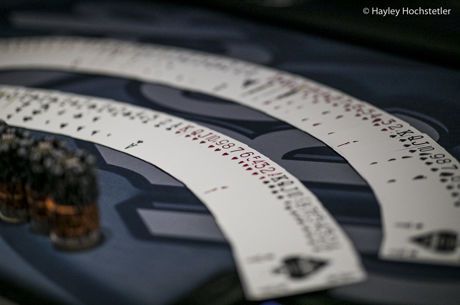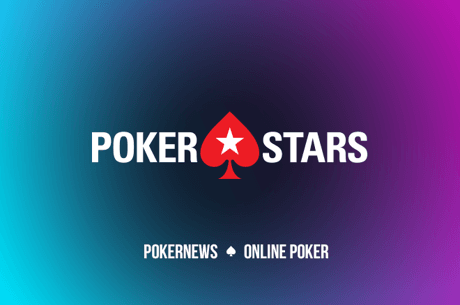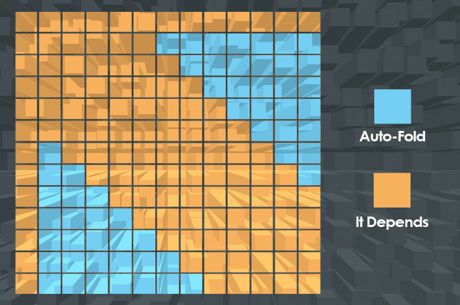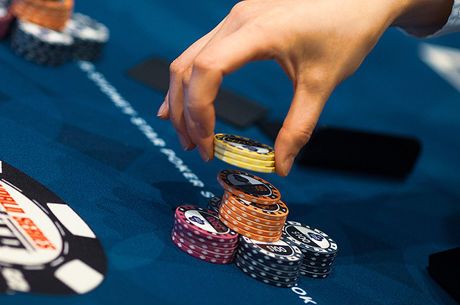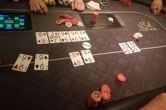Ultimate Beginner's Guide to Poker Equity (Free Calculators Included!)
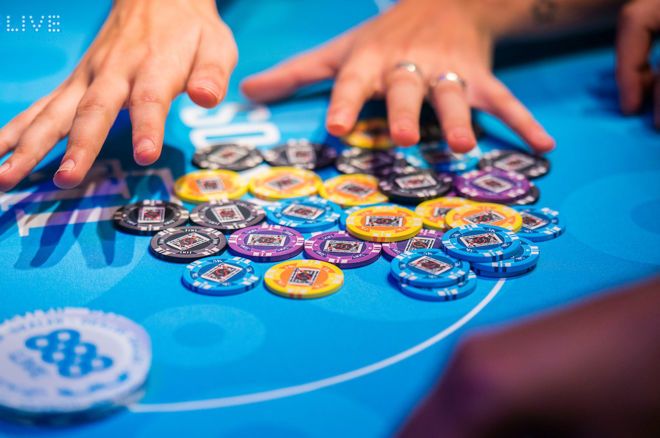
If you are looking for an article to finally understand the concept of poker equity, this is the right one for you.
In this beginner's guide to poker equity, we cover:
- what is equity in poker and why it matters
- how to calculate the equity in poker
- and a lot more.
There's also a list of the best poker equity calculators, so you can sit back and let someone else do the math for you.
Continue reading to understand why you need to master the concept of equity in poker and how you can use the best poker equity calculators to your advantage when you play online.
What is Equity in Poker?
The concept of 'poker equity' is one beginners don't like and often struggle to understand.
Not many love to think they should base their decisions on numbers or rely on a math-based approach when they play cards. After all, that's not what they expected when they first entered the world of poker.
If you are one of them, I have bad news for you:
Unless you understand what equity is in poker (and how to use it to your advantage), your results will hardly get your name featured on our articles here on PokerNews.
When you play poker, 'Equity' refers to your 'rightful' share of a pot as determined by your current chance of winning the hand.
If you are heads-up with $180 in the pot and your chance of winning the hand is 50%, your 'equity' in the hand at that moment is $90.
Be careful, though. The figure:
- does not refer to what you expect to win on that particular hand;
- it relates to the amount you would expect to win on average over multiple instances of the same situation.
If you think about this, you might understand why many players prefer to refer to poker equity as a synonym of 'value.'

Register a free account at 888poker to access outstanding poker strategy articles!
Play NowHow to Calculate Equity in Poker
With so many poker equity calculators out there, you might ask: "why should I learn how to calculate the equity in poker?"
A quick tap on your mobile phone or tools like this poker odds calculator can do the math for you. In seconds.
They tell you the value, the odds, and the optimal play based on your cards.
That's awesome, right?
What they don't do, however, is tell you how to calculate poker equity. Nor they tell you how to combine all the information available to find out your chances of winning the hand.
If you want to become a good poker player, you need to go the extra mile. You need to understand what happens around you and how to calculate value when you don't have any third-party help available to do the (dirty) work for you.
The following example shows you a real-life poker situation and introduces you to a simple way to calculate the equity in poker.
A Real-Life Example
In a no-limit hold'em cash game, you reach the flop in a heads-up pot. The board shows Q?9?4?.
Betting on the flop between you and a single opponent results in you being all in with the pot totalling $200.
- You turn over J?10? for a straight flush draw.
- Your your opponent has A?A?
Sadly for you, your opponent has the best hand at the moment, with a pair of aces beating your almost straight.
But not all is lost. As math shows, you have an excellent chance to be the one taking down the pot.
Even though your opponent is currently ahead in the hand, he is only a little under 44% to win the hand thanks to all of your possible outs.
You, on the other hand, are just over 56% to win.
How Did We Calculate Poker Equity?
Your equity is calculated by applying the percentage chance of winning to the amount in the pot �� here 56% of $200, or $112 of equity.
Meanwhile, your opponent's equity is $88.
(Of course only one of you will win the entire $200, depending on what the turn and river bring.)
How to Use Poker Equity When You Play
In the example, we calculate poker equity exactly after the cards were tabled, but when involved in a hand you must estimate your equity in a given pot based on your read of how your hand rates versus the hand strength of your opponent(s).
Say in that example your opponent was usually very tight and had three-bet you before the flop, then led with a bet on that Q?9?4? flop.
Given how the player has been playing, you believe it's very likely he holds a strong hand like pocket aces or pocket kings.

Knowing that you have such a strong draw and have more equity here than those hands (or indeed, than most hands), you can call or raise his flop bet.
That said, your equity can change as a hand proceeds.
Say you reach the turn in this same hand with the board showing Q?9?4?4?.
With just one card to come to complete your draws, your equity versus pocket aces or pocket kings has dropped to only under 30% of the pot, which might make it difficult to continue if your opponent bets and the resulting pot odds aren't favourable.
Sometimes you'll hear players say that when short-stacked in a tournament they'd instead go all-in with a hand like J?10? than with A?2?, because if they are called they are likely to have more 'equity' (i.e., a better chance of winning the hand).
If called by a player holding A?Q?, J?10? is almost 41% to win while A?2? is less than 27%. And if called by 7?7?, J?10? is actually a little over 50% to win while A?2? is only about 30%.
Consistently correct decisions based on equity considerations over the long term significantly increase the likelihood of being a winning player.
Read Also: How to Play Poker. A complete collection of poker rules (and strategy tips). Use it to discover new poker games or master the ones you already know.
Poker Equity Calculators
Now that you know what is poker equity and how you can calculate it yourself, it's time to look at the best calculators available right now.
You should use a poker equity calculator:
- As you play: to understand your chances to win a pot
- When you review your game: to evaluate the decisions you made and learn from your mistakes
- When you examine other players' hands: to reverse-engineer their thinking process and get inside their head
In the list that follows, you find the best poker equity calculators to use this year�� both free and paid. Have a look at them, find the one that matches your need, and use it to bring your game to a different level.
PokerNews poker equity calculator (Free)
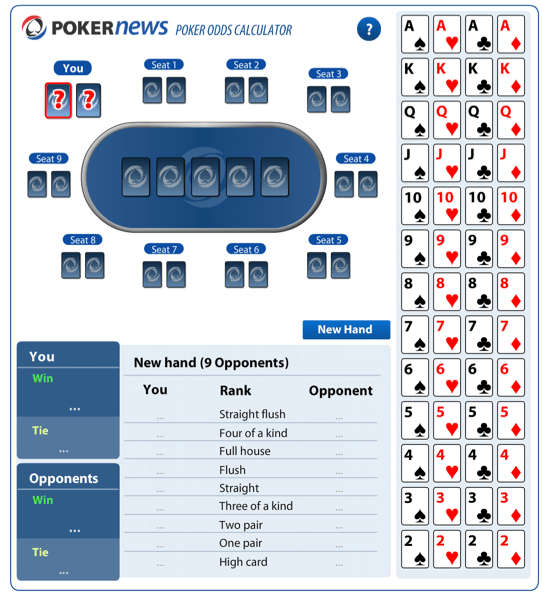
If you are looking for a free poker equity calculator, launch the PokerNews one and use it to recreate any scenarios you lived at the table.
The current calculator is in Flash and was replaced by an enhanced and all-new version in the first half of 2022.
So now, on that page you have the best poker equity calculator in the industry. Use it to calculate your odds, value, and a lot more. No subscription needed.
Visit the free poker odds calculator.
Poker equity calculator Holdem Lab 2 (Free)
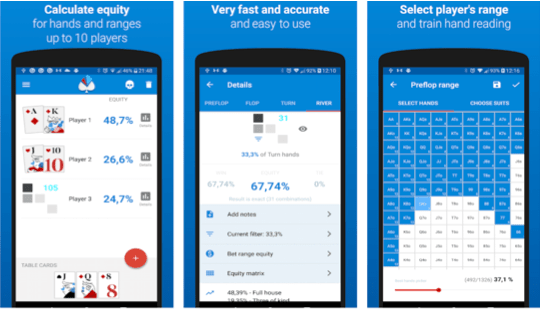
This handy Android app is one of the most popular Equity calculators on the Google Play Store.
The app claims to be "the most complex" equity calculator for Android, and despite a few tiny flaws, it is indeed one that will help you improve your game.
Download the Poker equity calculator Hold'em Lab 2 Android to access features like:
- free poker equity calculator
- accurate odds calculation
- range filtering
- hands history
- and many more.
This Equity calculator app has lots of positive reviews on Google Play, and it is available for free download.
Preflop + Poker GTO Nash Charts (Free / $74.99)
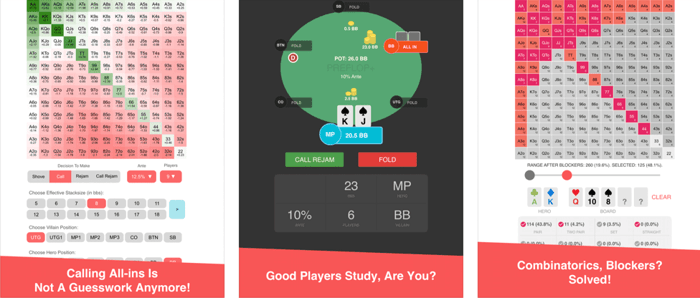
Although one should always doubt the apps that claim to be "THE best app to improve as a poker player," Preflop + is a great one to download on iPhone, iPad, and Android.
This poker app was developed by high-stakes pro Matt Berkey and is backed by 2019 WSOP Circuit Ring winner Lara Eisenberg.
Preflop + is more than just a poker Equity calculator as it gives you also different training modules improve various aspects of your game.
Once you access the different areas of Preflop +, you get to calculate your poker equity or train for particular spots and situations.
While this is one of the best apps of its kind, it is also one you need to pay for.
Using all the features of Preflop+ and therefore gaining access to the entire training program requires a subscription.
At the time of writing, the plans available are:
- Monthly: $3.99/month
- Yearly: $31.99/year
- Unlimited: $74.99 - unlimited access, forever
If spending $75 only poker app is not a problem for you, we recommend you try this one and make it an essential part of your poker training.
Flopzilla ($25)
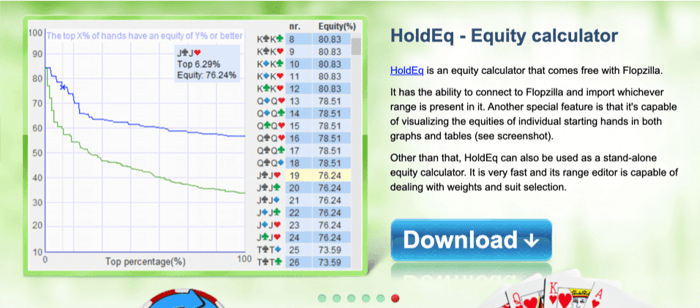
Flopzilla has been around for more than ten years and is one of the few poker tools that almost every player have used at least once in their life.
While the graphics look more basic than those of the most modern poker equity calculator apps, Flopzilla is a sound alternative �� provided you are looking for a desktop-based option.
Besides the super-fast access to useful stats, one of the aspects of Flopzilla that we love most is the involvement of the developers in the poker community.
The Flopzilla official thread on the 2+2 Poker Forum is always very active. It is the perfect place to discuss results, ask questions, and develop new customisations of the tool.
One Flopzilla license costs $25 and gives you the right to install the software on two computers.
Flopzilla's official website states that this poker equity calculator can be installed only on computers owned by the same person.
Different individuals cannot share the same license.
You can purchase the $25 license via PayPal, Skrill, credit card, bankwire, iDeal, and a few other payment solutions.
Poker Cruncher (Free / Paid)
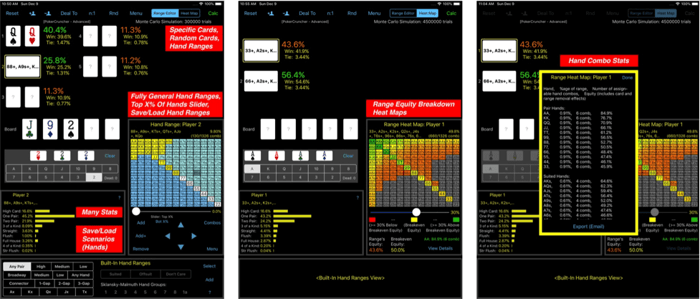
If you want to take your game the next level and you are ready to invest in a tool that will help you achieve your goal, have a look at Poker Cruncher.
Available on iPhone, iPad, Android, and Mac (via a dedicated app on the Mac App Store), Poker Cruncher is one of the few must-have applications that most beginners should consider purchasing.
Extremely useful for a correct poker odds calculation and hand analysis, Poker Crunches offers different paid plans �� all unlimited.
At present, the plans are:
- Advanced iPhone: $12.99
- Advanced iPad: $17.99
- Advanced Android: $12.99
- Expert Mac: $44.99
- Basic iPhone: $3.99
- Basic Mac: $7.99
- Free iPhone: free
Please note that all apps are sold separately. E.g. if you buy the iPhone version of this poker equity calculator, your purchase does not include access to the iPad or Mac apps, and vice-versa.
Poker Equity F.A.Q.
What is equity in poker?
When you play poker, the concept of 'equity' (also: 'value') refers to the part of a pot that is 'yours' as determined by your chances to win the hand ('odds') at a precise moment in time.
How to calculate equity in poker?
The simplest way to calculate the equity (or value) in poker is by applying your % chance to win the pot to the amount in the pot in a specific moment. For a more detailed explanation, look at this example.
Can you use a calculator to identify your equity?
Yes. You can use a free poker equity calculator for a quick analysis of a hand, or you can try a paid one to get more insights on your play. This list of poker equity calculators gives you all the top free and paid options available to you right now.
About this article
This guide to poker equity includes a collection of tips that appeared on different PokeNews articles between 2003 and 2023.
A great thanks go to Neil Gibson for his Talking Poker: Equity (2015), for the example in this article, and for giving us a way to create this basic guide to equity in poker.



